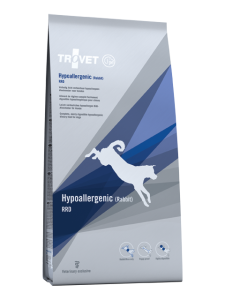Food allergies are a common issue among dogs, causing discomfort and health problems. Rabbit dog food has gained popularity as a suitable option for pet owners looking for a hypoallergenic diet for their furry friends. In this article, we will explore why rabbit dog food is an excellent choice for dogs with allergies and how it can benefit them.
Understanding Dog Food Allergies
Dogs, like humans, can develop allergies to certain foods. Common allergens include beef, chicken, dairy, and grains. Food allergies manifest in various ways, such as skin rashes, itching, gastrointestinal issues, and even ear infections. Identifying and eliminating the allergenic ingredient(s) from the dog’s diet is crucial for relieving the symptoms and improving their overall well-being.
Why Choose Rabbit Dog Food?
Rabbit dog food offers several benefits for dogs with allergies:
- Hypoallergenic: Rabbit meat is considered hypoallergenic, making it less likely to trigger an allergic reaction in dogs. It is a novel protein source that many dogs haven’t been exposed to before, reducing the risk of sensitivity.
- Low Allergenicity: Rabbit meat contains fewer allergenic substances compared to common proteins like beef or chicken. This makes it an ideal choice for dogs with known food allergies or sensitivities.
- Digestibility: Rabbit meat is highly digestible, which means it is easier on a dog’s digestive system. This is especially beneficial for dogs with sensitive stomachs or gastrointestinal issues caused by their food allergies.
- High-Quality Protein: Rabbit meat is an excellent source of high-quality protein, essential for the growth, repair, and maintenance of a dog’s body. It provides the necessary amino acids for optimal health.
- Omega-3 Fatty Acids: Rabbit meat is known to be rich in omega-3 fatty acids, which offer anti-inflammatory properties. These fatty acids can help soothe skin irritations and reduce allergic reactions, further benefiting dogs with allergies.

Credit: www.trovet.com
Transitioning to Rabbit Dog Food
When transitioning your dog to a rabbit-based diet, it is essential to do it gradually to prevent any digestive issues. Follow these steps:
- Consult Your Vet: Before making any dietary changes, consult your veterinarian to ensure it is the right choice for your dog and to get their guidance on the transition process.
- Start Slowly: Mix a small portion of rabbit dog food with your dog’s current food. Gradually increase the ratio of rabbit food over several days or weeks, depending on your vet’s recommendation.
- Observe Your Dog: Monitor your dog during the transition period for any signs of digestive upset or allergic reactions. If any occur, consult your vet immediately.

Credit: evangersdogfood.com
Frequently Asked Questions On Rabbit Dog Food For Allergies
Does Rabbit Dog Food Help With Allergies?
Yes, rabbit dog food is known to be a hypoallergenic option for pups with allergies.
What Makes Rabbit Dog Food Suitable For Allergies?
Rabbit dog food is hypoallergenic and easily digestible, making it an ideal choice for dogs with allergies.
Is Rabbit Dog Food Free From Common Allergens?
Yes, rabbit dog food is free from common allergens, such as chicken, beef, and grains, which are often triggers for allergies in dogs.
Can Rabbit Dog Food Improve My Dog’s Skin Allergies?
Yes, rabbit dog food can help improve your dog’s skin allergies, thanks to its hypoallergenic nature and high-quality ingredients.
Conclusion
Rabbit dog food provides an excellent solution for dogs with allergies. Its hypoallergenic nature, low allergenicity, and high digestibility make it a suitable choice for dogs suffering from food sensitivities or allergies. Furthermore, the high-quality protein and omega-3 fatty acids in rabbit meat offer additional health benefits. However, as each dog is unique, it is essential to consult your veterinarian before making any dietary changes for your pet.

Leave a Reply